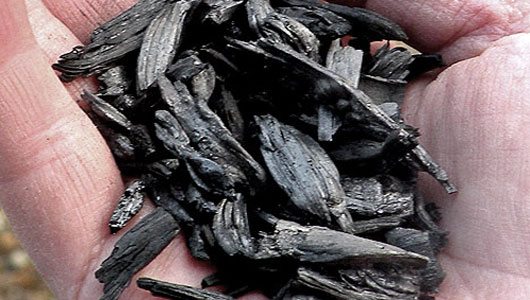Charcoal burns a path to greener industry
 Environmental engineers have used a recent mining conference to highlight the benefits of bio-char; a material created by industrial manufacture but which can be used to mitigate its environmental effects
Environmental engineers have used a recent mining conference to highlight the benefits of bio-char; a material created by industrial manufacture but which can be used to mitigate its environmental effects
Bio-char is created by various trapping techniques in situations where organic matter is burned on an industrial scale, such as at sugar cane refineries or any facility which burns a significant amount of biofuel. The charcoal derivative is used to boost the growth of more fuel, improve soil health and stimulate soil carbon sequestration.
Bio-char can be created at mine sites and given to farms to lessen the destructive effects of both. Andrew Regan, a University of Newcastle soil researcher investigating its use says: “The science on bio-char is quite recent, but one of our key messages that we want to get across is some bio-chars can have some benefits to some soils... there’s a whole range of different bio-chars and soils, and so it's really a bit of a testing ground.”
Trials of bio-char in plant cultivation have yielded improvements in crop harvests, as well as the physical and chemical properties of the soil following applications of bio-char.
Bio-char appears to work well in conjunction with traditional fertilisers, implying it could also reduce costs associated with soil restoration.
“This is a hundred per cent sustainable, which in itself is great,” Mr Regan said,
“If you're on a farm and know what soil you've got you can go to your local producer and get a bio-char that's likely to have an impact on your specific soil, and I think it's a step away from chemical fertilisers, which are unsustainable... a lot of people are working towards being able to alter the bio-char so that it can match specific soil types.”
There have been suggestions that bio-char could become a mandatory part of industrial manufacture. The multiple benefits of reducing harmful emissions, improving soil quality and later reduction in chemical fertilisers are difficult to overestimate.








 Print
Print